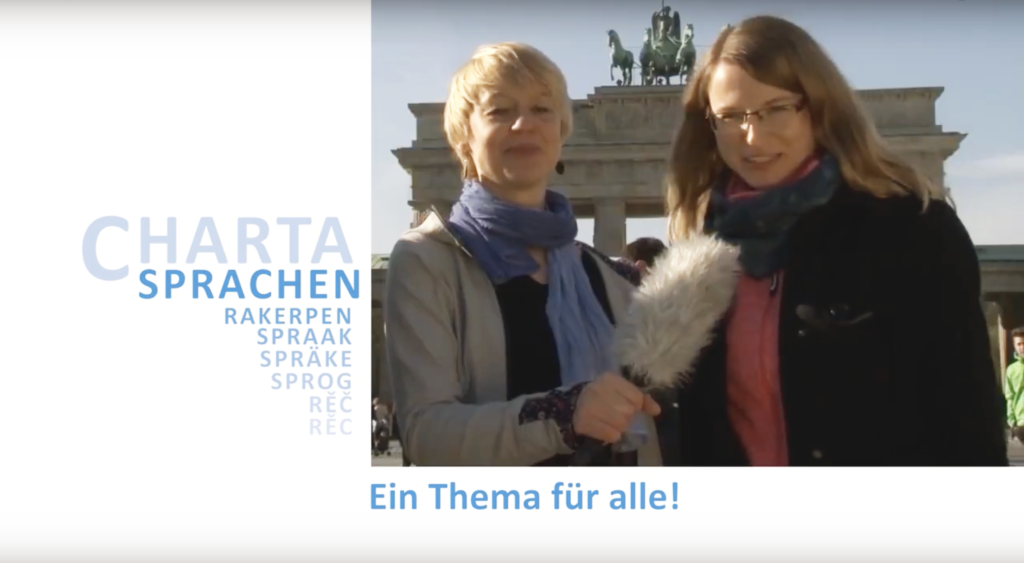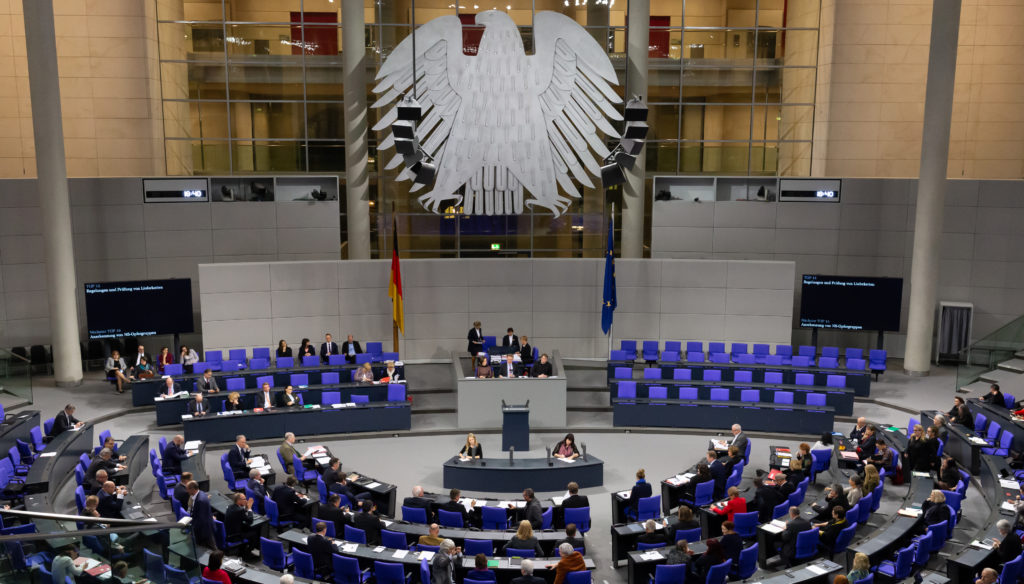Debate in the German federal parliament on the languages of the Charter in Germany
It took more than two and a half years to work towards the debate on the languages of the Charter in the German federal parliament. Already in November 2014 a conference took place in Berlin at which the position paper of the Minority Council “The Languages of the Charter in Germany – a Subject for All!” was presented together with the German Federal Government Commissioner for Matters Related to Ethnic German Resettlers and National Minorities. The paper contains principles and common aims in the field of the languages of the Charter in Germany.
Before the conference, the Minority Secretariat conducted a survey to evaluate the knowledge of the majority population about the languages of the Charter in Germany.

The lack of knowledge and to some extend the indifference shown in the short film gave a good impetus for a new approach in relation to the language policy that the federal level, the regions (lands), minorities and Low German-speakers have to develop together for the languages of the Charter in Germany and which has to reflect their shared responsibility.
The protection of the minority languages in Germany and the regional language of Low German is a task for the society as a whole. It is a responsibility for all those who are involved in the political implementation process of the European Charter for Regional or Minority Languages.
The first important success has been that on 2 June 2017 we succeeded in carrying through a debate in the German federal parliament on the occasion of the 25th anniversary of the European Charter for Regional or Minority Languages. Within the framework of this debate, the federal parliament unanimously adopted a motion submitted by the coalition parties CDU/CSU and SPD, as well as by Bündnis 90/Die Grünen (Printing Matter 18/12542) on the protection and promotion of the languages of the recognised national minorities – Danish, North- and Sater Frisian, Lower- and Upper Sorbian and Romanes – and the regional language of Low German.
In the adopted motion the German federal government is called upon to continue strengthening the political participation of the recognised minorities and the language group of the Low Germans. Furthermore the government should considered whether the right of the Sorbs, laid down in the Courts Constitution Act, to speak Sorbian before the court in their home districts, could be extended to the other minority and regional languages.
The government should also consider whether female Sorbs could be allowed to use the Sorbian female form of their surname. Furthermore the federal government should support initiatives to promote regional and minority languages in education establishments, in particular concepts to enhance the transmission in these languages to the younger generations. The Frisians also hopes for a corresponding liberalisation of the law on names and a reintroduction of their specific family surname.
In addition, the federal government should support initiatives to promote regional and minority languages in educational institutions, in particular concepts for greater teaching in these languages to the younger generation. Within this framework, the Low German Secretariat, funded by the Federal Ministry of the Interior, began its work in Hamburg in 2017 to provide conceptual and organisational support to the Bundesraat för Nedderdüütsch/Bundesrat für Niederdeutsch.

Speakers from all parliamentary groups recalled that by signing the Charter of the Council of Europe and ratifying it in 1998, Germany had committed itself to protecting and promoting minority and regional languages. The MPs used the debate to deliver large parts of their speeches in their regional languages and dialects.
The federal government thus recognised its duty. This example must now be followed by the federal states and thus by the Bundesrat. For in Germany, it is mainly these who are responsible for the protection and promotion of minority and regional languages.
The Minority Council with its Minority Secretariat remains on the ball!
Additional information:
Background information: